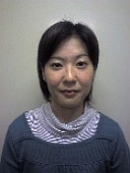Bio-political Perspectives on the Expression of People with Disabilities in Music Therapy: Case Examples
DOI:
https://doi.org/10.15845/voices.v14i3.800Palabras clave:
disability studies, music therapy, power relations, bio-politicsResumen
The burgeoning interdisciplinary field of disability studies has understood disability not as medical pathology, but rather as a social and cultural construction. It involves political attempts to move the dividing line between dis/ability, ab/normal, as well as gender, race, or ethnicity, from the perspective of “claiming disability” (Linton, 1998) as a positive political and cultural identity. However, in the music therapy field, disability studies has been generally ignored because music therapy has traditionally been ensconced in a medical model rather than a socio-cultural or political model. In this article, I will discuss the issue of power relationships inherent in music therapy by referring to recent literature in disability studies.
Descargas
Publicado
2014-10-26
Cómo citar
Miyake, H. (2014). Bio-political Perspectives on the Expression of People with Disabilities in Music Therapy: Case Examples. Voices: A World Forum for Music Therapy, 14(3). https://doi.org/10.15845/voices.v14i3.800
Número
Sección
Invited Submission - Special Issue
Licencia
Articles published prior to 2019 are subject to the following license, see: https://voices.no/index.php/voices/copyright

